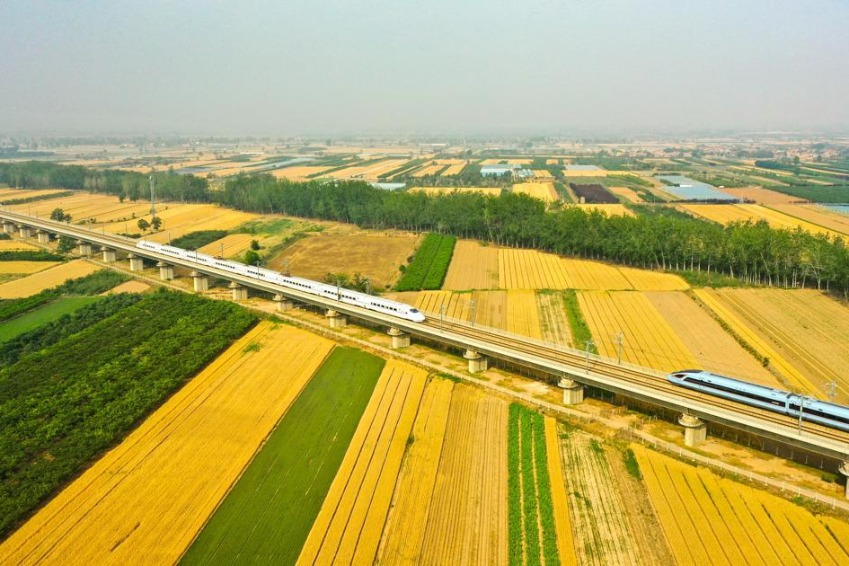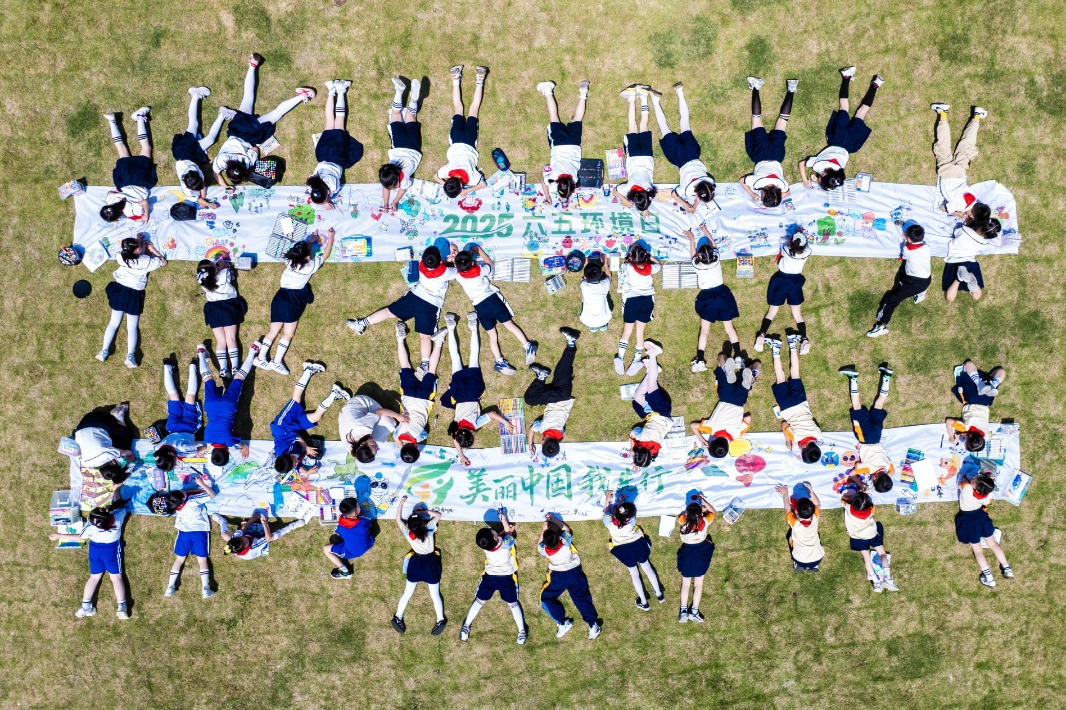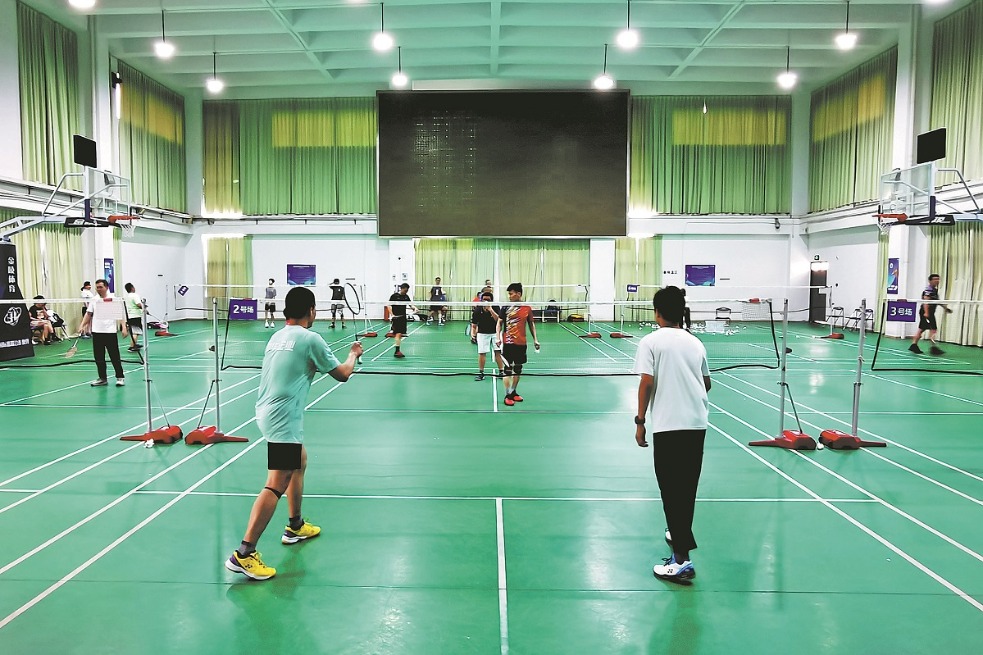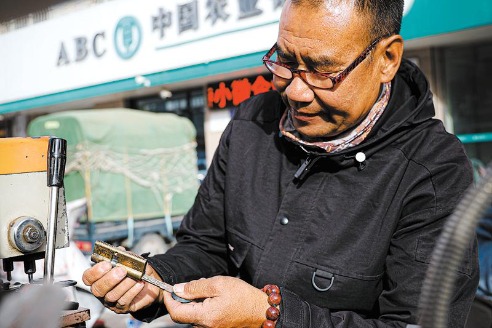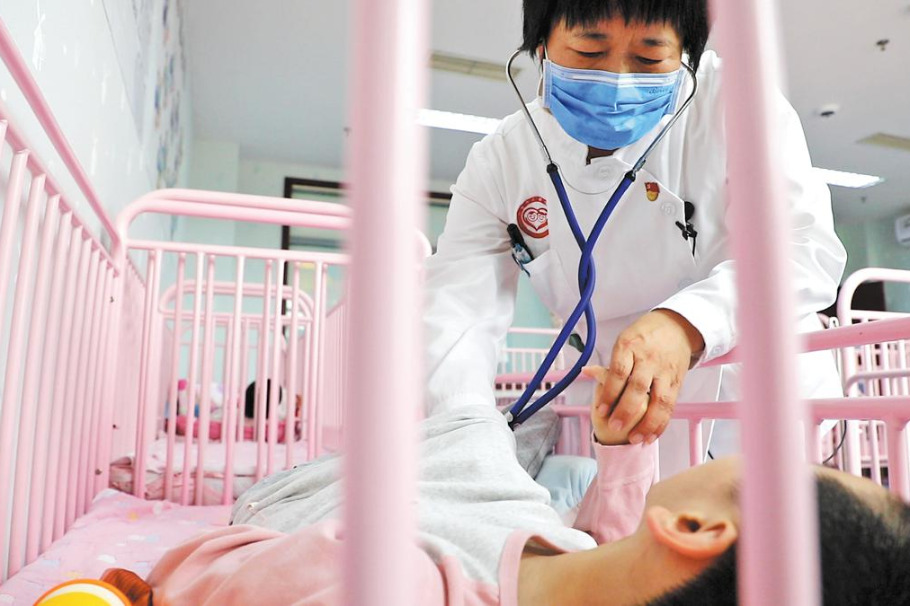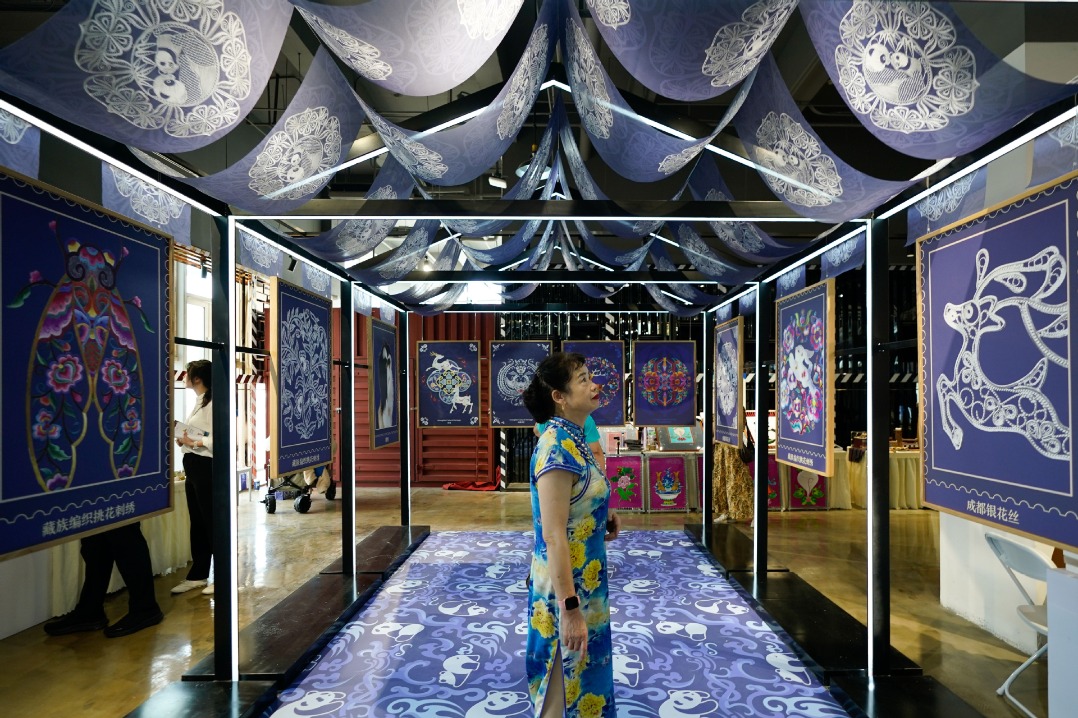Trash or trend? Chinese enterprises recycle plastic waste into chic souvenirs

BEIJING -- In a gift shop at Beijing's Palace Museum, a tote bag featuring a design inspired by a classic Chinese ink painting displays an intriguing symbol on its strap: the number nine alongside an illustration of beverage bottles.
The sign indicates that the bag is made from nine recycled beverage bottles. Another bag, also adorned with antique patterns, features a graphic showing a reduction of 419 grams of CO2 emissions as its silky fabric is made from recycled plastic waste.
These items are part of a special collection of souvenirs available at an ongoing exhibition. Their exquisite designs contrast with their humble origins -- recycled PET bottles, disposable meal boxes, and other plastic waste.
World Environment Day 2025, which falls on Thursday, calls for collective action to tackle plastic pollution. In China, a number of recycling initiatives, such as those repurposing beverage bottles into crafted souvenirs, are helping to raise awareness about plastic pollution and the value of recycling.
"Environmental protection is not just about lecturing the public," said Liu Xuesong, founder of Beijing Bottloop Environmental Technology Co., Ltd. (BOTTLOOP), the start-up that designed and produced the sustainable souvenirs sold at the Palace Museum exhibition.
Liu believes in the power of creativity, with which everyday trash can be transformed into aesthetic and functional souvenirs. Liu hopes that young consumers will choose their products not just because it is a responsible option, but also because they are drawn to the elaborate designs and the eco-friendly stories behind them.
Since both PET and synthetic fibers are mainly derived from petroleum, PET bottles and other plastics can be transformed into fabric through a series of processes. Liu explained the science behind these waste-to-wonder practices: typically, recycled plastic products are cleaned and shredded into small flakes. These flakes are then melted and extruded into yarn, which is spun into thread, and finally woven into rolls of fabric.
BOTTLOOP, founded in 2019, has a parent company that handles the initial processes, while supply chain partners take care of the remaining steps, all adhering to a unified environmental standard.
Recycling the plastics is accredited with saving consumption of petroleum and exempting the waste from landfills and incineration, thereby reducing CO2 emissions.
According to an on-site investigation by the Chinese Research Academy of Environmental Sciences, the recycling rate for PET beverage packaging in China reached 96.48 percent.
However, the overall plastic waste recycling rate was less optimistic. In 2022, China generated 63 million tonnes of plastic waste, of which approximately 30 percent was recycled, according to the China National Resources Recycling Association.
BOTTLOOP is not alone in navigating the niche market for recycled souvenirs, especially as the recent surge in public interest in traditional Chinese culture has fostered a young generation of museum-goers and sparked a craze for stylish cultural and creative items.
According to a report by Zhiyan Consulting, the market size of China's cultural and creative products reached $16.38 billion in 2023, a year-on-year increase of 13.09 percent. Recycling initiatives are capitalizing on this boom to attract a broader audience.
Shanghai-based GOOD CYCLE, founded in 2018, offers plastic recycling solutions to corporate clients. Both BOTTLOOP and GOOD CYCLE are participants in the Palace Museum's waste-free initiative.
Zhao Wenjing, the founder of GOOD CYCLE, believes that sustainable culture and creative products hold the potential to inspire the public to take eco-friendly action.
Zhao has witnessed rising business interest in recycling, as evidenced by increasing numbers of both domestic companies engaged in the waste recycling business and companies that seek cooperation with them.
"Moreover, our business partners now span a much wider range of industries, and they seek our expertise in providing office supplies and corporate gifts made from recycled materials."
She credits the transformation to supportive government policies, rising environmental awareness among the public, and a heightened sense of social responsibility among Chinese companies.
In recent years, the Chinese government has introduced a series of policies to reduce the use of single-use plastic products and encourage the adoption of environmentally friendly alternatives.
In 2021, the National Development and Reform Commission and the Ministry of Ecology and Environment announced a plan aimed at effectively reducing plastic pollution by 2025, which mentioned "stepping up standardized recycling and use of plastic waste." In 2023, China initiated a three-year action plan to promote the use of bamboo as an alternative to plastic products to curb pollution.
According to the United Nations Environment Programme, 19 to 23 million tonnes of plastic waste leaks into aquatic ecosystems every year, polluting lakes, rivers and seas.
GOOD CYCLE's recycled bags and wristbands were made available during the just-concluded Dragon Boat Festival.
"It is a Chinese tradition to give gifts on special occasions," Zhao said. "We hope our products are seen not just as gifts for family and friends, but also as presents for Mother Earth."
- Trash or trend? Chinese enterprises recycle plastic waste into chic souvenirs
- Bullet trains streak through golden wheat fields in Shanxi
- Various events held in China to mark World Environment Day
- Scenery of Qinghai Longbao National Nature Reserve
- 432 robots help relocate Shanghai's shikumen complex
- New lychee variety boosts Maoming's rural growth
















